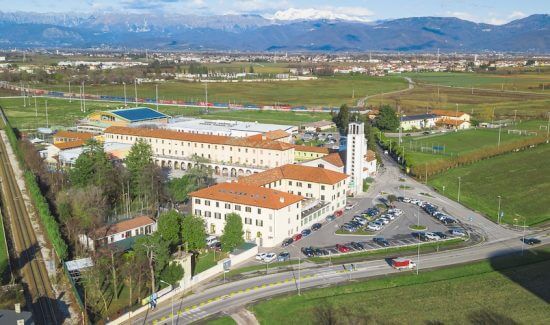

“ The implementation of the FlashStart Cloud filter and the transition from the previous filtering system (provided by a multinational American corporation) was quick and simple. This does not match the Italian. A handy notification system for unblocking requests that users send administrators was the final step in the implementation process, and soon the entire network was protected. “
Vittore Zen / CTO at DB Consorzio

The company
The Salesians are part of the Roman Catholic Church and are a community of 17,000 people community of 17,000 living in 2,000 buildings (schools, universities, libraries, oratories, parishes, and others). The Education, spiritual needs and welfare of children and young people is at the centre of the Salesian foundation.
In July 2013 the Salesian organization of northeastern Italy formed a central governing body to build shared services to 32 buildings across 4 campuses which are comprised of schools (www.issm.it), universities (www.iusve.it), teacher training centers (http://www.issm.it/icnos), vocational training centers (http://www.cnos-fap.it), and guest houses. About 400 young people use the education services on a daily basis.
FlashStart in numbers
around the world
have chosen FlashStart
against malware and contents
by our DNS system
During the analysis phase, the consortia chose FlashStart in order to provide centralized protection while allowing for individual restriction and filtering policies for the individual locations, wireless networks and WiFi areas. FlashStart Cloud provided everything that the IT team asked for through its online DNS-filtered based platform, which allowed the team to implement security and filtering policies throughout the entire LAN (such as by adding sites to the whitelists and blacklists) and, at the same time, allowed the team to individually manage the various locations.
The reports, delivered online and via email on a predetermined schedule, can provide aggregate data for all the locations or analysis for an individual location. Every report provides only summary data and does not refer to individuals’ personal navigation histories in order to comply with the strict Italian privacy and employment regulations.
FlashStart in numbers
around the world
have chosen FlashStart
against malware and contents
by our DNS system
The implementation of the FlashStart Cloud filter and the transition from the previous filtering system (provided by a multinational American corporation) was quick and simple. After the initial assessment phase, which was conducted in several pilot schools, all the other locations were connected to FlashStart Cloud, and the FlashStart DNS’s were automatically distributed throughout the wired LANs and Wi-Fi networks. The use of filtered DNS’s was then restricted using border nodes in order to prevent users from bypassing the centralized protection.
Try safe surfing for free!
A handy notification system for unblocking requests that users sent administrators was the final step in the implementation process, and soon the entire network was protected. With only a few clicks, filtering policies for all of the protected locations can be directly modified by administrators. This provides them with a powerful and flexible tool that works instantly. FlashStart Cloud was implemented in “naked” mode and was managed entirely by the organization’s own IT department, which has important ICT security skills and which serves as the system’s administrators.


